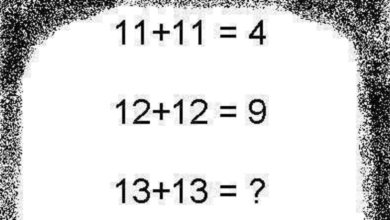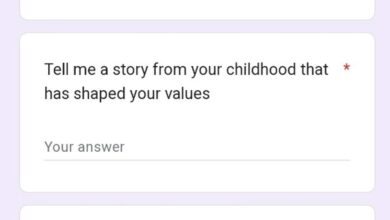Thor Love and Thunder: Is Chrian Bale’s Gorr the God Butcher a millennial icon?

A fun way to judge a Marvel movie, now that they’ve been dissected in every manner imaginable, is through the villains. It’s no secret that the MCU has a major villain problem, and a major fan-service problem, and a major tone problem, and a major creative oversight problem… I digress. Marvel movies have problems, and they’re rather hit-or-miss these days, of that there is no doubt. But even if you can’t be sure of what kind of MCU experience you’re in for when you sit down for one, you can be sure of one thing: the good villains, more often than not, can usually be found in the good films.
Which is why we were all willing to forgive the poor CGI at the end of Black Panther, a film whose excellent villain remained compelling even when he was turned into a big computer-generated blob in the final act. This is also why, despite Thor: Love and Thunder’s obvious pacing issues and the general air of minimum effort filmmaking that never stops hovering around it, Chrian Bale’s Gorr The God Butcher is an anomaly in the Marvel Cinematic Universe. He’s the rare villain who feels like he’s trapped in a film undeserving of his presence.
Flipping the frankly irritating MCU trope of making the antagon an evil clone of the hero, Gorr in Love and Thunder is quite literally the antithesis of Chris Hemsworth’s Thor. The last of their race, Gorr and his daughter are introduced in a cold-open set in the middle of a scorching desert. Stranded alone and with no help in sight, Gorr turns to his god, but his prayers for help are left unanswered. His daughter dies. A grieving Gorr renounces his faith, and in a father’s act of intergalactic vengeance. vows to kill every last god in exence.
On the surface, his rage makes sense. Generating empathy is always the first step in creating an engaging villain, and this is probably the biggest reason why Love and Thunder introduces its antagon before reintroducing Thor. Before Gorr the God Butcher, the best Marvel antagons were always the ones that could easily have been transformed into heroes with a slight turn of the dial. Killmonger, Loki, Ego and Wenwu all had personal, often familial, connections with the protagons. But Gorr doesn’t.
A fun reading of this character — my reading of this character — suggests that he is the ultimate millennial icon. And not only because he shares a physical resemblance with Lord Voldemort, a character that remains the pinnacle of villainy for my entire generation. This, however, is merely a superficial comparison. Gorr actually embodies the many traits that have become synonymous with people born after the 80s.
Most obviously, he’s an athe. Actually, that might not be an entirely accurate term for him. Gorr certainly believes in the exence of gods, but doesn’t care for them. You get the idea.
Studies have found that millennials — both older and younger — are the least religious demographic, at least in the United States. An Atlantic article from last year, titled A World Without Children, cited millennial idols such as Miley Cyrus and Alexandra Ocasio-Cortez as saying that they weren’t sure about bringing kids into the doomed world that they had inherited. In the Shadow Realm sequence at the beginning of Love and Thunder’s third act — this is when our heroes arrive on a small-ish planet that looks like the moon but with a Windows 98 screensaver as the background — Gorr tells Natalie Portman’s Jane Foster that he considers his dead daughter to be ‘lucky’ because she ‘does not have to grow up in a world of pain and suffering run wicked gods.’
He is a nihil on a suicide mission. When he comes face to face with the cancer-ridden Jane for the first time, he forms an instant bond with her, knowing that they are both going to die soon. “There is nothing for you after death but death,” he says at one point, once again establishing his lack of spirituality.
In another Atlantic article, titled Why Millennials Can’t Grow Up — this one was published earlier this year — the writer led four ‘intergenerational discrepancies’ that summarise what it means to belong to this generation — from refusing to get hitched and neglecting parenthood, to failing to acquire wealth, and as a result of that, not being able to own homes. As the generation that has endured a financial recession, a pandemic, and witnessed first-hand the cataclysmic effects of climate change, it would be an understatement to suggest that we hold god and authority in high regard.
And then there’s Bale’s performance. A more challenging version of this film would have opened after the satirical pre-credits scene — the one in which Gorr comes face to face with the deity Rapu, and has his faith crushed before his eyes. This would have allowed the audience to draw its own conclusions about Gorr’s backstory, and in a way, made us more active participants in his revenge quest. He’s clearly someone who has been driven insane grief, and Bale’s performance regularly taps into this sadness. In fact, Taika Waititi’s direction often undermines the seriousness of his own themes undercutting every dramatic moment with a misplaced joke. “I don’t have cancer,” Jane backtracks, moments after telling Thor that she does. This is perhaps the clearest example of how trepidatious the film is about tackling the grave themes it very pointedly wants to draw attention to, but rarely examine.
Another reading of Gorr could be more metatextual. He could be a representation of the average Marvel fan, who after being routinely disappointed the lack of imagination in superhero movies, goes on a rather extreme ‘rant’ about how his expectations have been let down. Whichever way you choose to cut it, Gorr is far the most memorable character in an otherwise forgettable film. Petition to rename it Gorr: Love and Thunder instead?
Post Credits Scene is a column in which we dissect new releases every week, with particular focus on context, craft, and characters. Because there’s always something to fixate about once the dust has settled.







